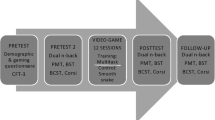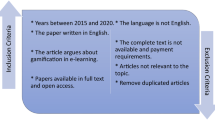Abstract
The development of music in games brings attractiveness and spreads the gaming industry. Music plays a vital role in the games to attract user attitudes toward gaming. The gaming industry is more beneficial than any other industry, like the film industry using music in-game. The evolution of music in games started a few decades ago and brought a lot of enhancement in gaming. Nowadays, a player likes music-based games more than any other game because while playing music-based games, it releases stress and keeps comfortable of player’s mind. The music in games changes the previous gaming style and advances, which help the young generation, learn something new from different games. Music is used to attract user attitudes and ultimately involve users in gaming during playing games. Music is utilized in-game to develop a more attractive and memorable game to enhance users’ interest in playing games. In addition, the usage of background music in games is also a primary part of successful games because, at a similar time, game developers and those who play games hope that video games can be more persuasive. After studying the previous paper, it identified that music in games positively impacts players’ performance and achievement, improves the player’s skills, and keeps players relaxed during playing games. The current research has considered the decision support system (DSS) for evaluating the role of music in games for sustained effectiveness. Results of the study have shown the efficacy of the study.
















Similar content being viewed by others
Data availability
No data are available.
References
Abbas S, Faisal M, Rahman HU, Khan MZ, Merabti M (2018) Masquerading attacks detection in mobile ad hoc networks. IEEE Access 6:55013–55025
Arutyunov V, Averkin A (2017) Genetic algorithms for music variation on genom platform. Proc Comput Sci 120:317–324
Böttcher N (2013) Current problems and future possibilities of procedural audio in computer games. J Gaming Virtual Worlds 5(3):215–234
Brown A, Kerr T(2009) Adaptive music techniques. In: Proceedings of Improvise: the Australasian Computer Music Conference 2009, pp. 26–31. Australasian Computer Music Association
Dixon S (2000) On the computer recognition of solo piano music. In: Proceedings of Australasian computer music conference, pp. 31–37
Elowsson A, Friberg A (2012) Algorithmic composition of popular music. In: The 12th International Conference on Music Perception and Cognition and the 8th Triennial Conference of the European Society for the Cognitive Sciences of Music, pp. 276–285.
Ekman I (2005) Meaningful noise: understanding sound effects in computer games. Proc Digit Arts Cult 17.
Faisal M, Abbas S, Ur Rahman H (2018) Identity attack detection system for 802.11-based ad hoc networks. EURASIP J Wirel Commun Netw 2018(1):1–16
Gärdenfors D (2003) Designing sound-based computer games. Digital Creat 14(2):111–114
Gorbunova IB, Govorova AA (2018) Music computer technologies as a means of teaching the musical art for visually-impaired people. In: Int'l Conference Proceedings, pp. 19–22.
Gunawan AA, Suhartono D (2019) Music recommender system based on genre using convolutional recurrent neural networks. Proc Comput Sci 157:99–109
Hao Q, Nazir S, Gao X, Ma L, Ilyas M (2021) A review on multicriteria decision support system and industrial internet of things for source code transformation. Sci Program 2021:1–9 (Article ID 6661272)
Huang Y, Nazir S, Wu J, Khoso FH, Ali F, Khan HU (2021) An efficient decision support system for the selection of appropriate crowd in Crowdsourcing. Complexity. https://doi.org/10.1155/2021/5518878
Jørgensen K (2008) Left in the dark: playing computer games with the sound turned off. Ashgate
Lee J-H (2012) A study of the changes of game music. J Korea Game Soc 12(1):103–111
Lee M, Choi H, Cho D, Lee H (2016) Cannibalizing or complementing? The impact of online streaming services on music record sales. Proc Comput Sci 91:662–671
Li T, Ogihara M (2003) Detecting emotion in music. In: International Conference on Music Information Retrieval.
Meng Y, Nazir S, Guo J, Uddin I (2021) A decision support system for the uses of Lightweight blockchain designs for P2P computing. Peer-to-Peer Netw Appl. https://doi.org/10.1007/s12083-021-01083-9
Monteith K, Martinez TR, Ventura D (2010) Automatic generation of music for inducing emotive response. In: ICCC, pp. 140–149, Citeseer.
Müller M, Konz V, Bogler W, Arifi-Müller V (2011) Saarland music data (SMD). In: Proceedings of the international society for music information retrieval conference (ISMIR): late breaking session
Nazir S, Shahzad S, Mahfooz S, Jan MN (2015) Fuzzy logic based decision support system for component security evaluation. Int Arab J Inform Technol 15(2):224–231
Ng P, Nesbitt K (2013) Informative sound design in video games. In: Proceedings of The 9th Australasian Conference on Interactive Entertainment: Matters of Life and Death, pp. 1–9.
Parker JR, Heerema J (2008) Audio interaction in computer mediated games. Int J Comput Games Technol 2008:1–8
Pazos A, Del Riego AS, Dorado J, Caldalda JR (1999) Genetic music compositor. In: Proceedings of the 1999 Congress on Evolutionary Computation-CEC99 (Cat. No. 99TH8406), vol. 2, pp. 885–890, IEEE.
Rogers K (2017) Exploring the role of audio in games. In: Extended Abstracts Publication of the Annual Symposium on Computer-Human Interaction in Play, pp. 727–731.
Roux-Girard G (2011)Listening to fear: a study of sound in horror computer games. In: Game sound technology and player interaction: Concepts and developments. IGI Global, pp. 192–212.
Shapiro RB, Kelly A, Ahrens M, Johnson B, Politi H, Fiebrink R (2017) Tangible distributed computer music for youth. Comput Music J 41(2):52–68
Su J-H, Chang W-Y, Tseng VS (2013) Personalized music recommendation by mining social media tags. Proc Comput Sci 22:303–312
Toprac P, Abdel-Meguid A (2011) Causing fear, suspense, and anxiety using sound design in computer games. In: Game sound technology and player interaction: Concepts and developments. IGI Global, pp. 176–191.
Funding
No fund was received to support this study.
Author information
Authors and Affiliations
Contributions
The idea was formulated by the YY, DW, and MF. The study was documented by all the authors, and overall work was supervised by first authors and FJ, and SJ. The draft version of the paper was prepared by all the authors, and the supervision along with the final draft was prepared by the first author and Muhammad Faisal.
Corresponding author
Ethics declarations
Conflict of interest
The authors declare that they have no conflicts of interest.
Ethical approval
The paper does not deal with any ethical issues.
Informed consent
The authors declare that all authors have informed consent.
Additional information
Communicated by Shah Nazir.
Publisher's Note
Springer Nature remains neutral with regard to jurisdictional claims in published maps and institutional affiliations.
Rights and permissions
About this article
Cite this article
Yu, Y., Wang, D., Faisal, M. et al. Decision support system for evaluating the role of music in network-based game for sustaining effectiveness. Soft Comput 26, 10775–10788 (2022). https://doi.org/10.1007/s00500-022-06992-2
Accepted:
Published:
Issue Date:
DOI: https://doi.org/10.1007/s00500-022-06992-2




